Venezuelan President To Visit Iran On Saturday For Key Talks
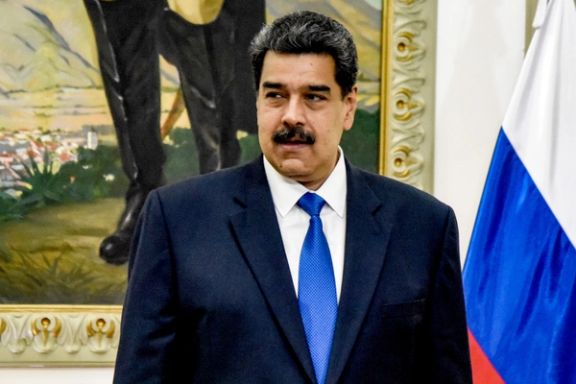
Venezuelan President Nicolas Maduro is expected to pay an official two-day visit to Tehran to hold talks with senior Iranian officials.

Venezuelan President Nicolas Maduro is expected to pay an official two-day visit to Tehran to hold talks with senior Iranian officials.
Heading a political and business delegation, Maduro is due in Tehran on Saturday at the invitation of Iranian President Ebrahim Raisi.
The Venezuelan president is scheduled to meet his Iranian counterpart and attend a session of high-level delegations from the two countries.
Iran and Venezuela have been slapped with sanctions by the US, which doesn’t currently import oil from either nation, and has in recent years reimposed sanctions on Iranian state entities, including the national oil company NIOC, and in 2019 blacklisted PDVSA.
The two countries strengthened their cooperation in 2020, with Venezuela importing condensate from Iran, key to thin its extra-thick crude oil. Iran has also stepped in to help its South American ally with engineers, refined products and spare parts for its oil industry.
Iran and Venezuela have also recently expanded a swap agreement signed last year to increase the supply of Iranian heavy crude to Venezuela's El Palito refinery and Paraguana Refining Center (CRP).
In early May, Iranian Oil Minister Javad Owji traveled to Venezuela to visit oil facilities and sign contracts in the energy sector.
Later in May, an oil tanker carrying about one million barrels of Iranian crude arrived in Venezuelan waters for delivery to the country's largest refinery.

Israeli Prime Minister Naftali Bennett arrived in the United Arab Emirates on Thursday and will meet its president, Sheikh Mohammed bin Zayed Al Nahyan.
Bennett's Abu Dhabi visit, his third in recent months, had not previously been announced, an Israeli statement said, adding that the two leaders, whose countries opened relations two years ago, would discuss "various regional issues" but provided no detail.
“Today, together, we will take the special bond that has been woven between our countries to the next level," it quoted Bennett as saying.
In the statement, Bennett also commended the International Atomic Energy Agency's passing of a resolution critical of Iran for failing to explain uranium traces found at three undeclared sites.
On Wednesday, of 35 members states on the IAEA board of governors, 30 voted in favor of the resolution sponsored by the ‘E3’ (France, Germany, the United Kingdom) and the United States.
Before the vote, Iran reacted by announcing that it would turn off two monitoring devices installed by the IAEA at its nuclear installations, a decision that the US condemned. Sources say Iran will also speed up installation of advanced uranium enrichment machines.
The resolution comes with year-long talks paused since March between Iran and six world powers aimed at reviving the 2015 Iran nuclear deal, the JCPOA (Joint Comprehensive Plan of Action), and with continuing preparations in Israel for an attack on Iran’s nuclear sites.
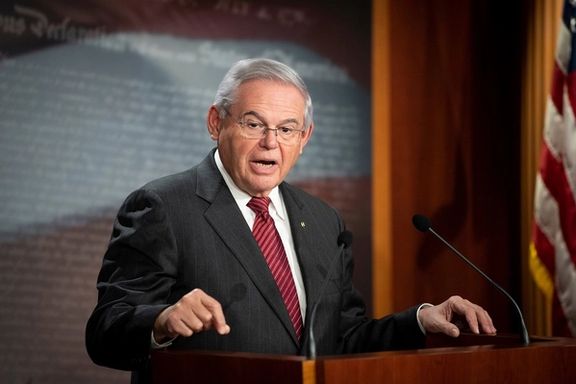
The chairman of the US Senate Foreign Relations Committee has said the Biden administration must accept that a return to the 2015 nuclear deal, the JCPOA, is not in US interest.
Senator Bob Menendez (D-N.J.) said on Wednesday that “Iran now has enough uranium to produce a nuclear weapon. This latest milestone returns us to a familiar question: At what point will the Administration acknowledge that Iran’s nuclear advances make a return to the 2015 JCPOA not in the United States’ strategic interest?” The Politico reporter who quoted Menendez did not say where he made the remarks.
He also commended the UN’s “International Atomic Energy Agency (IAEA) Board of Governors’ approval – by an overwhelming majority – of a resolution condemning Iran, saying, “It is high time the board of governors publicly hold Iran to account for its failure to provide credible and timely cooperation with the IAEA’s inquiry into undeclared nuclear materials, which are in contravention of Iran’s safeguard agreement.”
Of 35 member states on the board, 30 voted in favor of the resolution sponsored by the ‘E3’ (France, Germany, the United Kingdom) and the United States. India, Libya and Pakistan abstained, while Russia and China voted against.
Menendez reiterated that it is time for a comprehensive strategy to address Iran and the threat it poses, “Iran as it is, not the Iran we might hope for.”
“I commend the Biden administration, and France, Germany, and the United Kingdom for introducing this resolution as a first step to realizing such a strategy,” he added.

A high-ranking Iranian official has admitted that "corruption" was the underlying reason for the collapse of a high-rise building that led to days of protests.
Raja News website which speaks for the ultraconservative Paydari party quoted governor general of Khuzestan Province Sadegh Khalilian as saying that the Metropol Towers were built during Iran's previous government, adding that "the building was erected on the foundations of corruption and unhealthy relations."
Officials say they have recovered more than 40 bodies but citizens say many more people were inside when it collapsed.
Earlier, Iranian media and social media activists had pointed out that the owner of Metropol maintained illicit links to individuals, as high-ranking as Ali Shamkhani, the Secretary of Iran's Supreme Council of National Security. They accused the bigwig of helping the owner Hossein Abdolbaghi by using his influence through local officials including his nephew Mo'ud Shamkhani.
Mr. Shamkhani, an IRGC general, categorically denied using his influence, but subsequently, other reports mentioned further details about the link including family bonds between the Shamkhanis and Abdolbaghis, which could not be denied.
The decision to hint at some of the corruption involved in building the towers could have been made at a higher level in the government. The official Instagram account of the Iranian government on June 5 also posted a photo of the ruins of Metropol Tower in Abadan that collapsed on 23 May. The text in the post quoted Khalilian as saying: "The Metropol incident is the consequence of unhealthy relations and lack of supervisory measures."
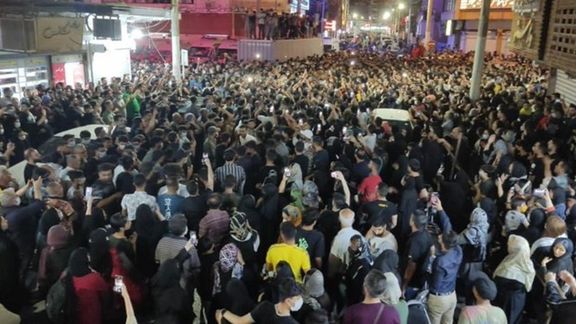
Khalilian was the first high-level official to confirm media reports about financial corruption in the tragedy. He acknowledged that there has been corruption in the province dating back to 2015-2020, distancing himself and the Raisi administration that assumed office in 2021.
Unlike most of Iran's local governors who come from the Revolutionary Guard’s top brass, Khalilian was previously an academic at the University of Ahvaz and the Teachers Training University in Tehran although he had started his career as a petty officer in the IRGC.
Khalilian said that the local authorities at the time were aware of the building's instability in with at least two series of reports given to them by the engineering supervisory body in 2017 and 2019, but they simply ignored it because of those "unhealthy relations", which means bribery in the Iranian administrative jargon.
He added that the building was illegally constructed in an alleyway that was only 4 meters wide and this made search and rescue efforts difficult, and that the building permit was for a 6-story building and five floors were added later.
Khalilian had earlier said that 13 local officials including the cities last three mayors are under arrest. Earlier this week, former governor general of Khuzestan Gholamreza Shariati who has been implicated in corruption cases, left Iran for the United Arab Emirates and reports about his "escape" were published on social media. Later, the Iranian Judiciary said that he was not implicated in the case.
On Tuesday, Shariati wrote on social media that he is back in Iran, however, there is no evidence that the statement was really made by him or if he did return. Khalilian said that leaving the country was a mistake by the former governor and called on the judiciary to take this into account.
Talking further about corruption Khalilian said, "Perhaps no money has changed hands, but when high-ranking officials take part in the opening ceremony of the building, this creates an aura of security around the owner, and everyone believes that he is a well-connected person."
Initial reports by local reporters living abroad indicated that Abdolbaghi had given expensive lands or buildings to some local officials as gift.
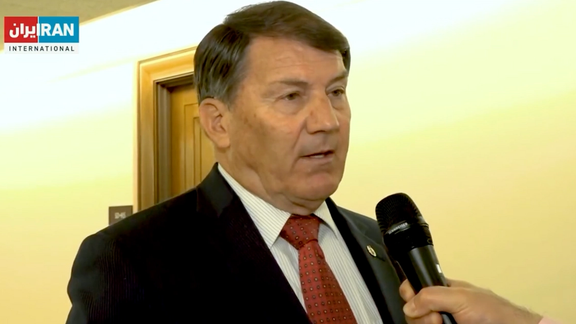
A number of US lawmakers told Iran International that the Islamic Republic’s removal of the UN nuclear watchdog's surveillance cameras shows Iran’s intentions are not peaceful.
Republican Senator Mike Rounds from South Dakota said on Wednesday that “they have intents other than peaceful desires with regards to nuclear weapons. They have clearly been on the road to developing a nuclear weapon from day one.”
Highlighting that Israel is at risk of attacks by Iran, Rounds said the US has done “hopefully” its best to limit the Islamic Republic’s ability to get a nuclear weapon.
Criticizing the Biden administration's Iran policy, he said that “when you move from one admin to another you have to have a consistent policy.”
He added that he had disagreed in the past and still disagrees with “the proposed settlements between the US and Iran."
Indiana’s Republican Senator Todd Young said the path Iran is pursuing is going to make the country even more isolated, noting, “This is not going to any place good for Iran's leaders. They want to continue to be isolated by the international community.”
Referring to the recent anti-government protests across the country, he said that “If they want to continue to hurt their people who have recently been rising up against their leadership because of their economic circumstances, then they're doing the right thing. If instead, they would like to enjoy prosperity and opportunity for their people and longer-term security, they're going to need to abide by the terms in the spirit of IAEA mandates to go in and look at all the facilities to ensure Iran is not trying to develop nuclear weapons."
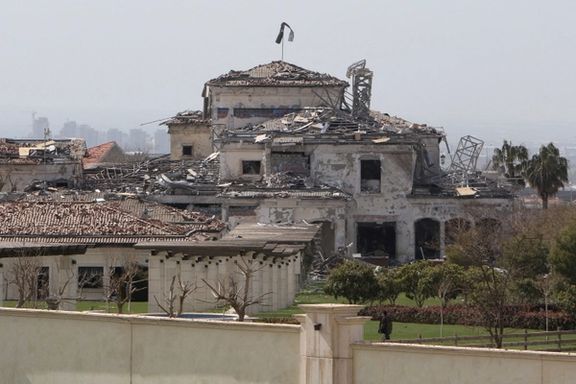
A drone exploded in Iraq's Erbil Wednesday injuring three people and damaging several cars, according to a statement by Kurdistan's counter-terrorism service.
The explosive drone detonated on Pirmam road in Erbil's outskirts at 9:35 p.m. Iraq time, the statement said.
Two security sources, speaking on condition of anonymity, said the drone was shot down.
There was no immediate claim of responsibility.
A security source said earlier that a drone attack targeted the US consulate but did not give further details.
Iraqi Prime Minister Mustafa al-Kadhimi told Kurdish Prime Minister Masoud Barzani in a phone call that Baghdad will cooperate with Erbil to hold the perpetrators accountable, according to a statement.
"Bomb-laden drone hit Erbil-Pirmam road, causing civilian injuries and damage," the UN Assistance Mission for Iraq said on Twitter. "Iraq does not need self-proclaimed armed arbiters. Asserting State authority is essential. If the perpetrators are known, call them out and hold them to account."
Last month, Iran Revolutionary Guards artillery fire hit an area north of Erbil, targeting what Iranian state television described as terrorist bases.
Also, in March the Guards attacked the capital of the Kurdish region with a dozen ballistic missiles in an unprecedented assault on the capital of the autonomous Iraqi Kurdish region that appeared to target the United States and its allies
At least three other attacks have targeted oil refineries in Erbil since the March attack, but no group has claimed responsibility for them.
Report by Reuters